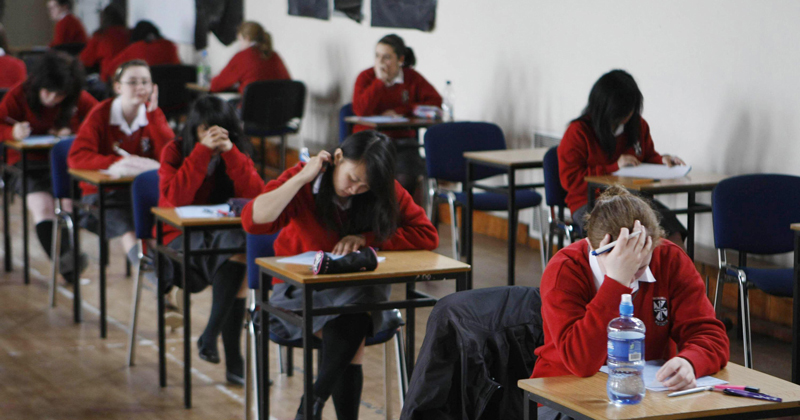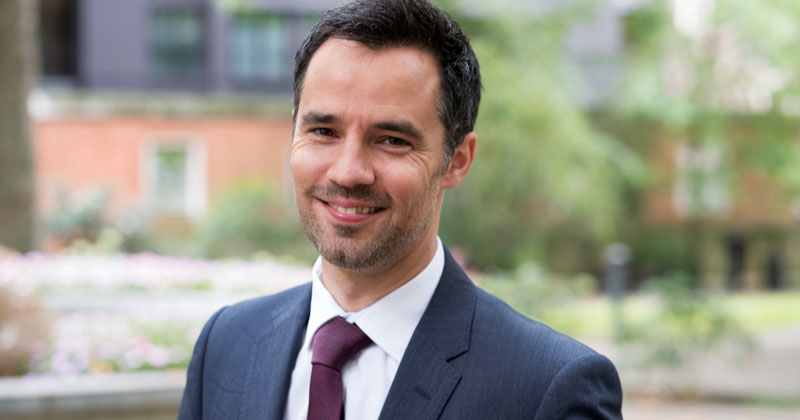The impact of the “educational damage” of Covid on GCSE results will continue “well into the 2030s”, a new study has warned.
The paper said successive pupil cohorts were set for the biggest declines in GCSE results in “at least two decades”.
It also forecasted an “unprecedented widening of the socio-economic gap in GCSE prospects”, in a post-Covid “double whammy”.
Academics from the University of Exeter, the London School of Economics and the University of Strathclyde conducted the research, funded by the Nuffield Foundation.
The University of Exeter said the study was the first to chart how school closures during Covid hindered children’s socio-emotional and cognitive skills at age five, 11, and 14, and predict how these will impact on future GCSE prospects and later life outcomes.
The study recommended a range of “low-cost” policy proposals (see below) to boost outcomes and “level the education playing field”, including calls for a national programme of trained undergraduate tutors and “rebalancing” Ofsted inspections to “consider disadvantage”.
Professor Lee Elliot Major said: “Without a raft of equalising policies, the damaging legacy from Covid school closures will be felt by generations of pupils well into the next decade
“The policies we propose would rebalance the school system so that it supports all children irrespective of their backgrounds.”
Here is your trusty Schools Week round-up of the findings and proposals.
1. Covid fallout to affect GCSEs ‘well into 2030s’
The research found that successive Covid cohorts were “on course for the biggest overall decline in basic GCSE achievement for at least two decades.
Researchers predicted less than four in ten pupils in England in 2030 will achieve a grade 5 or above in English and mathematics GCSEs – lower than the 45.3 per cent who did in 2022-23.
2. ‘Unprecedented’ widening of attainment gap
They also warned of an “unprecedented widening of the socio-economic gap in GCSE prospects”. Sometimes called the attainment gap, this is the difference in performance between disadvantaged pupils and their better-off peers.
They said this gap for pupils aged 11 at the time of Covid school closures will “widen by 4.5 percentage points for boys and by 4.3 percentage points for girls.
“This equates to a 32-percentage point socioeconomic gap in standard passes in English and maths GCSEs from 2024.”
3. Educational damage could cost billions
The academics estimated the “educational damage wrought by Covid” will have an economic cost to the national economy of £31.4 billion in today’s prices, due to lower lifetime earnings because of falling GCSE achievement.
They forecast that the UK’s relative income mobility levels would decline by 12 to 15 per cent for generations of pupils leaving school over the next decade, a “significant decline in income mobility” by international standards.
4. University-led tutoring could boost attainment AND recruitment
The study called for “a UK-wide programme of undergraduate tutors” to tutor and mentor school pupils, to “tap into the volunteering instincts of the younger generation”.
It suggested university-led tutoring, where undergraduates take part on on a voluntary or paid basis, was a “potential cost-effective scalable and sustainable option”.
This could also serve as a “potential pipeline for new teachers at a time when the profession is facing acute recruitment and retention challenges”.
The paper suggested universities “could be incentivised to embed tutoring into the curriculum through an accredited module or as part of a ‘service learning model’ in which all students are expected to do community-based work as part of their degrees”.
It called on the Department for Education to take a “proactive role in developing further evidence on this model and encourage partnerships between universities and schools”.
5. The other key recommendations
- An enrichment guarantee in schools so that all children benefit from wider
activities outside the classroom that nurture socio-emotional skills - A national programme to measure pupils’ wellbeing to create greater focus
on wellbeing that is strongly linked to children’s evolving skills - A dedicated research programme to develop evidence-informed approaches to school parent and community partnerships
- Rebalancing Ofsted inspections to explicitly consider disadvantage in schools and credit those excelling when serving under-resourced communities
- A new deal for teachers clarifying working hours and supporting a more
balanced school calendar to improve the wellbeing











